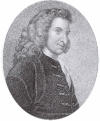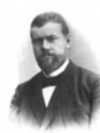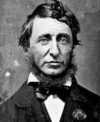 Fielding was an English novelist and dramatist known for his humor and satire. He settled in London in 1729 and began writing comedies, farces, and burlesques, including Tom Thumb. Two of his satires attacked the Walpole government and provoked the Licensing Act of 1737, which initiated censorship of the stage and ended his career as a playwright. He thereupon turned to writing novels, publishing his most popular work, Tom Jones, in 1749. Why did he travel to Portugal in 1754? Discuss
Fielding was an English novelist and dramatist known for his humor and satire. He settled in London in 1729 and began writing comedies, farces, and burlesques, including Tom Thumb. Two of his satires attacked the Walpole government and provoked the Licensing Act of 1737, which initiated censorship of the stage and ended his career as a playwright. He thereupon turned to writing novels, publishing his most popular work, Tom Jones, in 1749. Why did he travel to Portugal in 1754? Discuss
Source: The Free Dictionary
 Kinship terms like mother and son are words used by a specific culture to describe various familial relationships. Such terminologies include words used to address members of one’s own family as well as words used to identify people’s relationships to one another. Kinship terms generally distinguish between the sexes and generations and indicate whether people are related by blood or marriage. What is the difference between “descriptive” and “classificatory” kinship terms?
Kinship terms like mother and son are words used by a specific culture to describe various familial relationships. Such terminologies include words used to address members of one’s own family as well as words used to identify people’s relationships to one another. Kinship terms generally distinguish between the sexes and generations and indicate whether people are related by blood or marriage. What is the difference between “descriptive” and “classificatory” kinship terms?  Born José Joaquim da Silva Xavier, Tiradentes gained his nickname, which means “tooth-puller,” working as a healer in his youth. In the late 1780s, he joined and soon became the leader of a revolutionary movement against Portuguese rule in Brazil that was inspired by the American Revolution. In 1789, the movement was betrayed and its leaders were imprisoned. They were freed and exiled in 1792 with the exception of Tiradentes, who was executed in Rio de Janeiro. What was done with his remains?
Born José Joaquim da Silva Xavier, Tiradentes gained his nickname, which means “tooth-puller,” working as a healer in his youth. In the late 1780s, he joined and soon became the leader of a revolutionary movement against Portuguese rule in Brazil that was inspired by the American Revolution. In 1789, the movement was betrayed and its leaders were imprisoned. They were freed and exiled in 1792 with the exception of Tiradentes, who was executed in Rio de Janeiro. What was done with his remains?  This
This  Weber was a German sociologist and political economist whose most famous and controversial work, The Protestant Ethic and the Spirit of Capitalism, examines the relationship between Calvinist—or Puritan—morality, compulsive labor, bureaucracy, and economic success under capitalism. Weber also wrote about social phenomena such as charisma and mysticism, which he saw as antithetical to the modern world and its underlying process of rationalization. What other important works did he write?
Weber was a German sociologist and political economist whose most famous and controversial work, The Protestant Ethic and the Spirit of Capitalism, examines the relationship between Calvinist—or Puritan—morality, compulsive labor, bureaucracy, and economic success under capitalism. Weber also wrote about social phenomena such as charisma and mysticism, which he saw as antithetical to the modern world and its underlying process of rationalization. What other important works did he write?  Over the centuries, as styles of clothing change and evolve, so too do the ways in which men wear their facial hair. In 18th-century Europe, the chinstrap, a narrow line of beard that grows along the chin and jaw, gained popularity, while the handlebar moustache, with its characteristically lengthy ends, is considered stereotypical of the 19th-century American Wild West. What are “friendly mutton chops”?
Over the centuries, as styles of clothing change and evolve, so too do the ways in which men wear their facial hair. In 18th-century Europe, the chinstrap, a narrow line of beard that grows along the chin and jaw, gained popularity, while the handlebar moustache, with its characteristically lengthy ends, is considered stereotypical of the 19th-century American Wild West. What are “friendly mutton chops”?